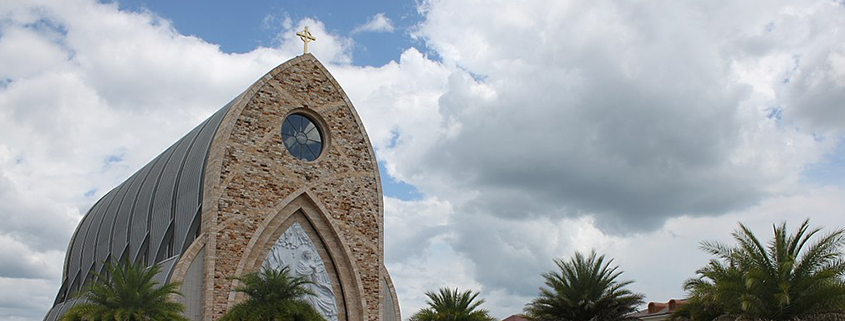Catholic Education ‘First Step’ Toward ‘Reform of the Crisis,’ Says College-Bound Student

Maria Schmidt
Editor’s Note: The Cardinal Newman Society recently announced Maria Schmidt of Providence Academy in La Crosse, Wisconsin, as the winner of the Society’s fourth annual Essay Scholarship Contest for Catholic college-bound students. Schmidt will receive a $5,000 scholarship toward her education at Ave Maria University in Ave Maria, Florida, this fall. Below is the full text of Schmidt’s winning essay. More information about the Contest can be obtained here, and students who want to be eligible for next year’s Contest can sign up for Recruit Me here.
The Eucharist is the greatest Sacrament—the entirety of Jesus. So much of the faith is contained in this one mystery! Nevertheless, a recent Pew Research poll reveals that less than 26 percent of professed Catholics under the age of 40 believe in the Real Presence of our Lord in the Eucharist. The study also implies that a lack of catechesis is connected to the disbelief: 43 percent of Catholics who do not believe in the Real Presence think that their view aligns with Church teaching. In light of this finding, the believer should face the crisis with a renewed commitment to strong Catholic education and faith formation. This development of the person especially includes choosing a faithful Catholic College which teaches the truth, encourages virtue, and offers spiritual nourishment.
A good education helps form the whole person, laying down proper philosophical principles necessary for the pursuit of truth in all its classes and activities. Traditional philosophy and theology help the student to understand grace and Transubstantiation by acquainting them with the notions of form, substance, and accident. Science and mathematics pose no challenge to the faith, but rather support one’s belief in God, showing the great wisdom of His creations. History and literature aid the student in grasping human nature, exposing many falsehoods. Sports teams and campus activities promote the physical and communal wellbeing of the student, offering plenty of opportunities to volunteer in the spirit of servant leadership. Together, the courses and activities of a good education contribute to a deep appreciation of the truth and selflessness.
With salvation as their goal, the members of a Catholic college encourage virtue through their examples and friendships. The influence of one’s companions, most importantly in the still-formative years of young adulthood, should not be overlooked. People are social creatures and will often think like those with whom they spend the most time. Virtuous peers and professors instill admiration in each other’s hearts, encouraging the emulation of virtue. Surrounding oneself with good companions is, therefore, a crucial step in guarding and strengthening one’s faith.
All efforts, however, are in vain unless they are united to the spiritual life of the Church. A faithful Catholic college knows this best, offering its students and faculty ample access to daily Mass, adoration, sacraments, prayer, and spiritual direction. Such an institution recognizes the profound unity between man’s body and soul, the effects of original sin, and man’s supernatural calling from God. A Catholic college cannot shy away from this calling and remain genuinely Catholic.
While many people and colleges profess to be Catholic, it has become more apparent that not all of them are truly Catholic. Such a crisis in faith is not unprecedented. The faithful, meanwhile, take comfort in the Church’s rich traditions and life from God, who is bodily present among us in the Eucharist. Like the monks of Cluny Abbey who saved the faith of Europe in the tenth century, let us first reform ourselves through strong Catholic education and spiritual nourishment. That is the first step towards the reform of the crisis, and another of many steps toward heaven.

